Coronavirus pandemic anniversary: South Sudan and why vaccines are needed fast
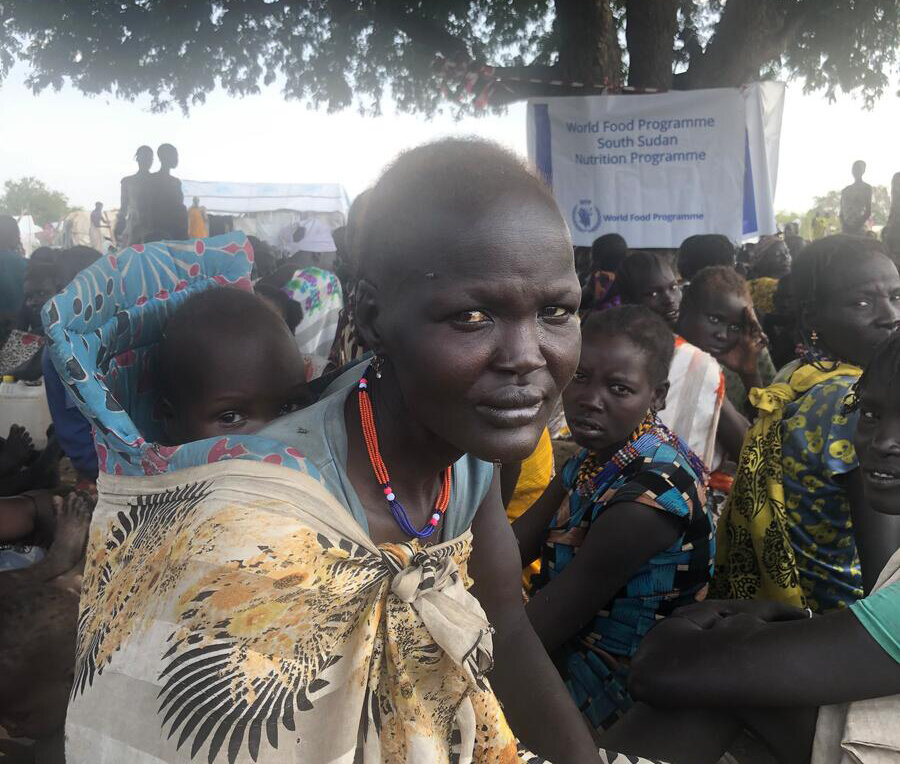
It’s 10:00 when Brian Langdon, deputy Logistics Cluster coordinator in charge of the COVID-19 response plan in South Sudan, gets his first call of the day. A newly arrived World Food Programme (WFP) humanitarian kicking off two weeks quarantine in Juba is checking in. So far so good.
WFP leads the Logistics Cluster in the country, providing logistics support to the humanitarian community and coordinating joint COVID-19 operations of the Government of South Sudan, UN agencies and NGOs.
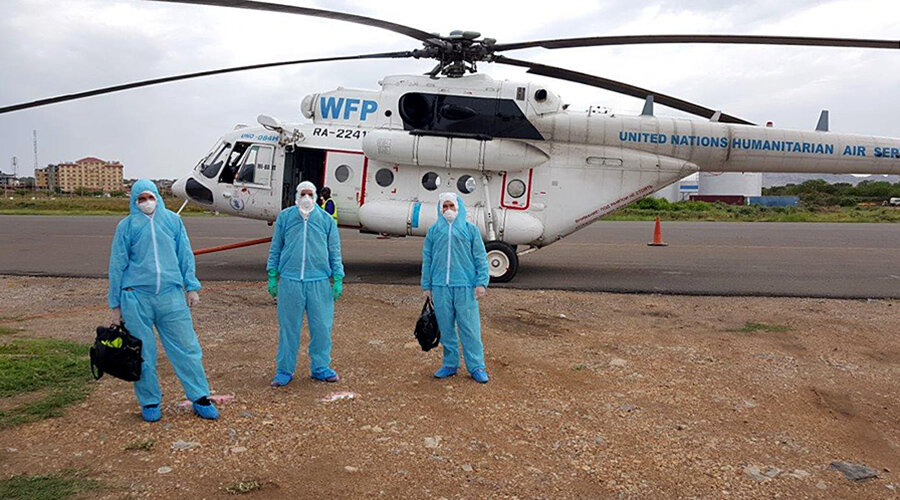
An hour later Langdon receives another call. A WFP colleague working in remote Jonglei state has tested positive for COVID-19 and is struggling to breathe. Langdon wastes no time in arranging an emergency evacuation.
At the airport in Bor, Jonglei’s capital, three men in full protective gear see the sick colleague onto a medically equipped aircraft. This year, WFP has carried out nearly 30 evacuations in South Sudan.
'No one can predict the course of the pandemic’s journey. Vigilance is now more important than ever'
A year after the World Health Organization declared the coronavirus outbreak a pandemic, COVID-19 continues to compound difficulties already faced by humanitarian agencies in delivering vital assistance to vulnerable people affected by conflict, floods, and food insecurity.
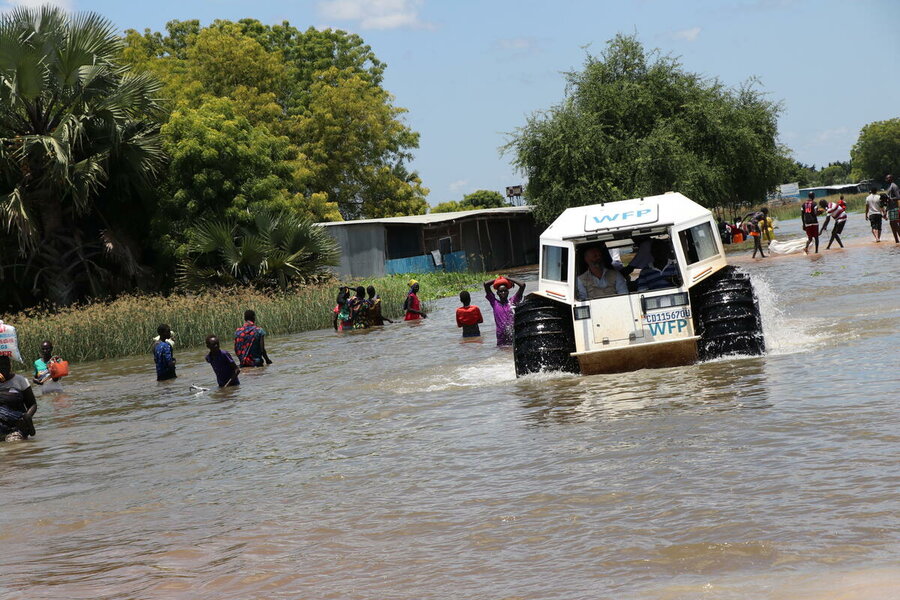
South Sudan is witnessing its highest levels of hunger and malnutrition since it gained independence ten years ago, with 60 percent of its 11 million people experiencing severe acute food insecurity and 1.4 million children aged under-5 suffering from acute malnutrition.
Running a cell of the UN’s MEDEVAC System, Langdon is part of a 130-strong staff of COVID-19 responders around the world, transferring personnel showing symptoms of the virus to designated hospitals across Africa, Latin America, Asia, and the Middle East.
“We are moving into a very critical phase of the pandemic in South Sudan,” says Langdon who, with the Logistics Cluster team, set up the preparedness plan for COVID-19 in 2019, before the first wave hit Africa. “No one can predict the course of the pandemic’s journey. Vigilance is now more important than ever.”
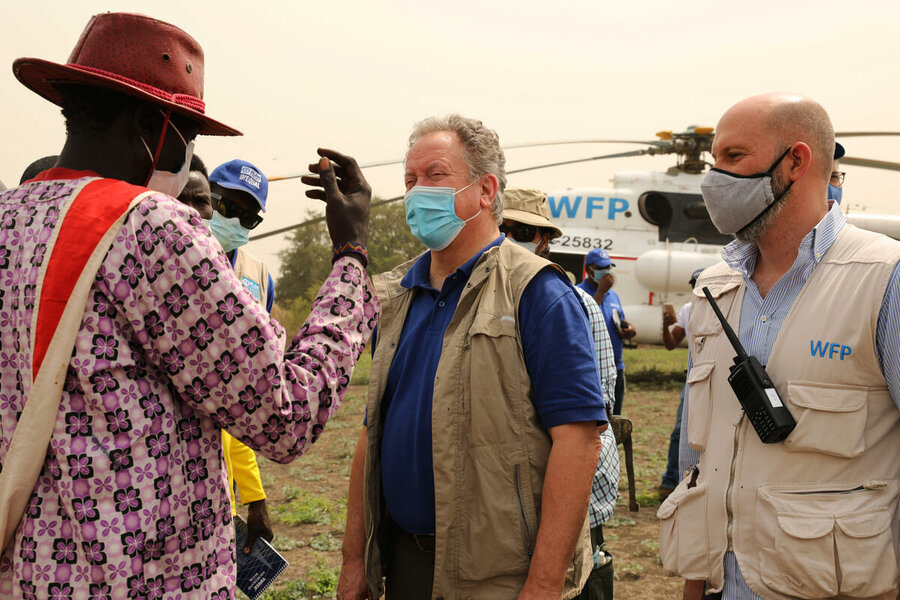
In emergency settings, WFP staff are committed to staying where they are needed most — on the ground, saving lives.
“More than 5 million people in South Sudan depend on our life-saving services and the hope and certainty that our efforts bring to them,” says Matthew Hollingworth, WFP’s Country Director and Representative in South Sudan.
WFP knows that in order to continue to reach those most in need, the organization must prioritize safeguarding the health and safety of everyone including its own and partners' staff.
The WFP humanitarian who went from tackling Ebola to coronavirus
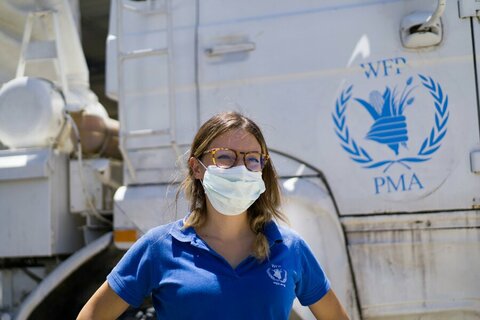
Physical distancing, hand hygiene, the use of face masks, and regular temperature checks within its workforce and at field distribution sites are some of the ways that WFP is implementing protective measures.
WFP also leverages its logistics capacity by deploying the United Nations Humanitarian Air Service (UNHAS), which it manages, to carry out medical evacuations, transporting and storing critical protective equipment for the wider humanitarian community.
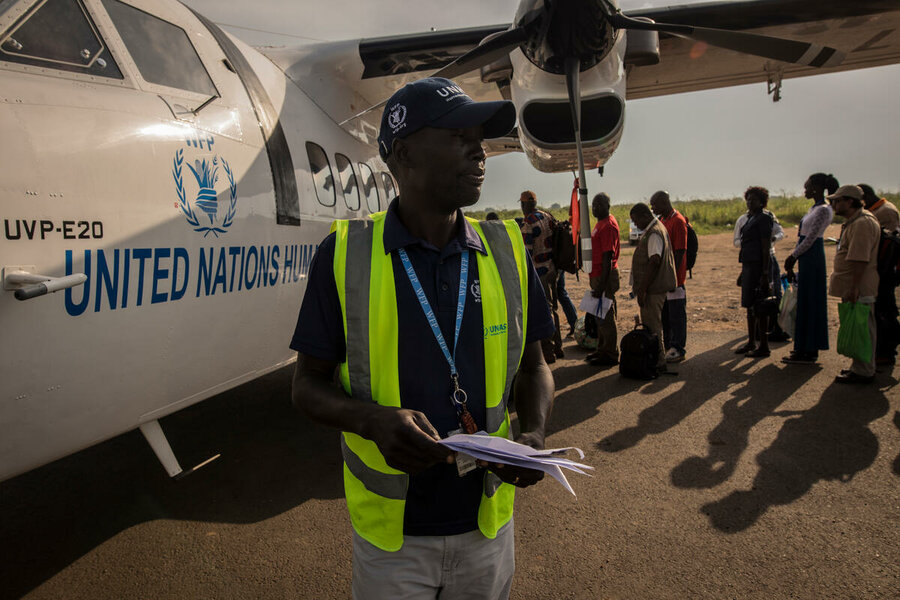
“WFP humanitarian aid workers understand that the lives of millions of people are at stake so we go the extra mile to continue to enable humanitarians to fly to remote locations to do their job,” says Geoffrey Mwanzi, chief air transport officer for UNHAS in South Sudan.
As countries scramble to acquire vaccines, low-income countries — where conflict, climate change and now COVID-19 often exacerbate food-insecurity together — are being left behind.
High-income countries may have initially secured a large share of vaccines but a more equitable distribution — to people living in humanitarian disasters such as South Sudan — is key for a return to any form of normalcy for the whole world.
Learn more about WFP's work in South Sudan
